🌞Summer Seasonal Planting Guide: What to Grow in the Hot Season 🌱
Summer is the perfect time to enjoy the warmth of the sun while nurturing your garden! 🌻 Whether you're growing flowers, herbs, or vegetables, summer planting can be a rewarding experience with the right preparation and care. Here’s everything you need to know about summer gardening—from the best plants to grow, to expert tips for success! 🌸🍅
Summer Flowers 🌸
Zinnias

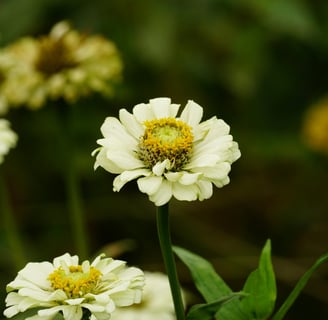
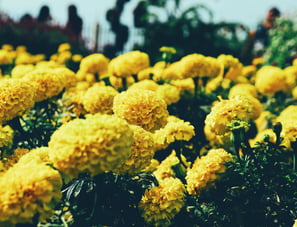

Marigolds
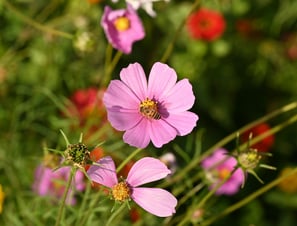

Cosmos
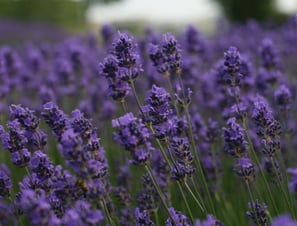

Lavender
About This Plant:
Zinnias are bright, cheerful annual flowers native to Mexico and Central America. They’re famous for their bold colors and ability to bloom continuously in the heat.
Planting Months: Late spring to early summer
USDA Zones: 2-11
Days to Germination: 5–10 days
Sun Needs: Full sun
Water Needs: Moderate
Pet Safety: Safe
Care Tips: Deadhead spent flowers. Water at soil level. Avoid wetting leaves to prevent mildew.
About This Plant:
Marigolds are sun-loving annuals known for their pest-repelling qualities in vegetable gardens. Their vibrant orange and yellow blooms can handle intense sun and dry spells.
Planting Months: Late spring to midsummer
USDA Zones: 2-11
Days to Germination: 5–7 days
Sun Needs: Full sun
Water Needs: Moderate
Pet Safety: Generally safe
Care Tips: Great for borders and vegetable beds. Don’t overwater. Remove spent blooms to extend flowering.
About This Plant:
Cosmos are drought-tolerant, vibrant annuals that provide a burst of color throughout the summer. These low-maintenance plants are perfect for adding interest to the garden and attracting pollinators.
Planting Months: Late spring to early summer
USDA Zones: 2-11
Days to Germination: 7–10 days
Sun Needs: Full sun
Water Needs: Moderate
Pet Safety: Safe
Care Tips: Pinch back to encourage bushier growth. These are great for cut flowers.
About This Plant:
Lavender is a fragrant, versatile perennial that thrives in sunny spots and dry conditions. Its fragrant purple flowers are perfect for attracting pollinators and making your garden smell amazing.
Planting Months: Spring to early summer
USDA Zones: 5-9
Days to Germination: 14–21 days
Sun Needs: Full sun
Water Needs: Low
Pet Safety: Safe
Care Tips: Trim after blooming to keep plants tidy. Avoid overwatering.
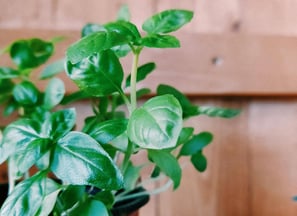

About This Plant:
A summer classic, basil thrives in heat and sun. Its fragrant leaves pair perfectly with tomatoes, making it a garden and kitchen essential.
Planting Months: Late spring through summer
USDA Zones: 4-11
Days to Germination: 5–10 days
Sun Needs: Full sun
Water Needs: Regular
Pet Safety: Safe
Care Tips: Harvest often to encourage bushiness. Pinch off flowers to keep leaves flavorful.
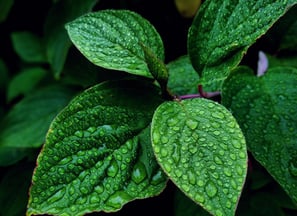

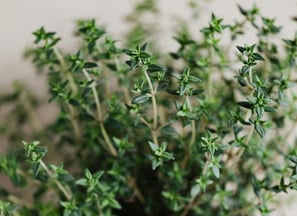

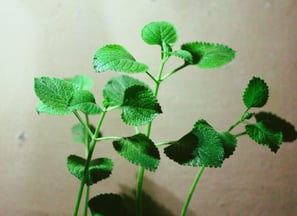

Basil
🌿 Heat-Tolerant Herbs
Mint
Thyme
Oregano
About This Plant:
Mint is a hardy, fast-growing herb with cooling, aromatic leaves. It’s perfect for teas, desserts, and as a garden pest deterrent.
Planting Months: Spring to early summer
USDA Zones: 3-11
Days to Germination: 10–16 days
Sun Needs: Partial shade to full sun
Water Needs: Consistent moisture
Pet Safety: Safe
Care Tips: Grow in containers to prevent spreading. Regular trimming keeps it compact.
About This Plant:
Thyme is a fragrant, drought-tolerant herb with tiny leaves and a strong flavor. It’s great for cooking and thrives in the summer heat.
Planting Months: Late spring to early summer
USDA Zones: 4-9
Days to Germination: 7–21 days
Sun Needs: Full sun
Water Needs: Low
Pet Safety: Safe
Care Tips: Prune regularly to prevent legginess. Thyme is perfect for container gardening.
About This Plant:
Oregano thrives in hot, dry conditions and is a great companion plant for tomatoes. This herb is perfect for adding to Mediterranean dishes.
Planting Months: Late spring to early summer
USDA Zones: 4-9
Days to Germination: 7–14 days
Sun Needs: Full sun
Water Needs: Low
Pet Safety: Safe
Care Tips: Trim back to promote fresh growth. Excellent for container planting.
🥕 Summer Vegetables
Tomatoes
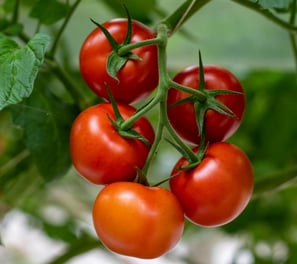

About This Plant:
Tomatoes love heat and sunshine, rewarding growers with juicy fruit from midsummer on. Choose determinate or indeterminate types based on your space.
Planting Months: Late spring through midsummer
USDA Zones: 3-11
Days to Germination: 5–10 days
Sun Needs: Full sun
Water Needs: Regular deep watering
Pet Safety: Toxic (leaves and stems)
Care Tips: Mulch heavily. Water early mornings. Stake or cage plants for support.
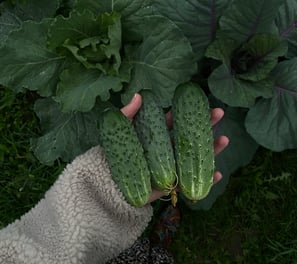

Cucumbers
About This Plant:
Cucumbers are fast-growing summer vines producing crisp, refreshing fruits. They do well with trellising for better air circulation.
Planting Months: Late spring through midsummer
USDA Zones: 4-11
Days to Germination: 3–10 days
Sun Needs: Full sun
Water Needs: Frequent
Pet Safety: Safe
Care Tips: Keep soil consistently moist. Mulch to reduce evaporation. Pair with dill and nasturtiums.
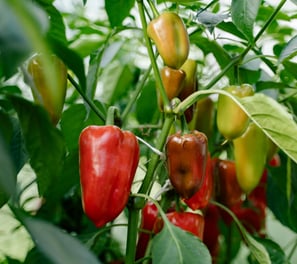

Peppers
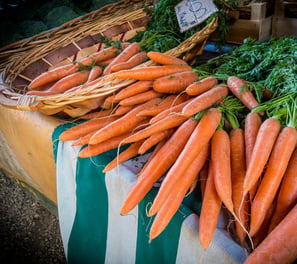

Carrots
About This Plant:
Peppers are ideal for hot climates and can be grown in both small spaces and larger gardens. They come in a variety of colors and heat levels.
Planting Months: Late spring through summer
USDA Zones: 9-11
Days to Germination: 7–14 days
Sun Needs: Full sun
Water Needs: Moderate
Pet Safety: Safe
Care Tips: Regularly harvest fruits to encourage more production. Mulch to retain moisture.
About This Plant:
Carrots thrive in well-draining, loose soil. Their bright orange roots are a favorite in kitchens around the world.
Planting Months: Spring to early summer
USDA Zones: 3-10
Days to Germination: 10–21 days
Sun Needs: Full sun
Water Needs: Moderate
Pet Safety: Safe
Care Tips: Thin out seedlings to ensure proper spacing. Keep soil moist but not soggy.
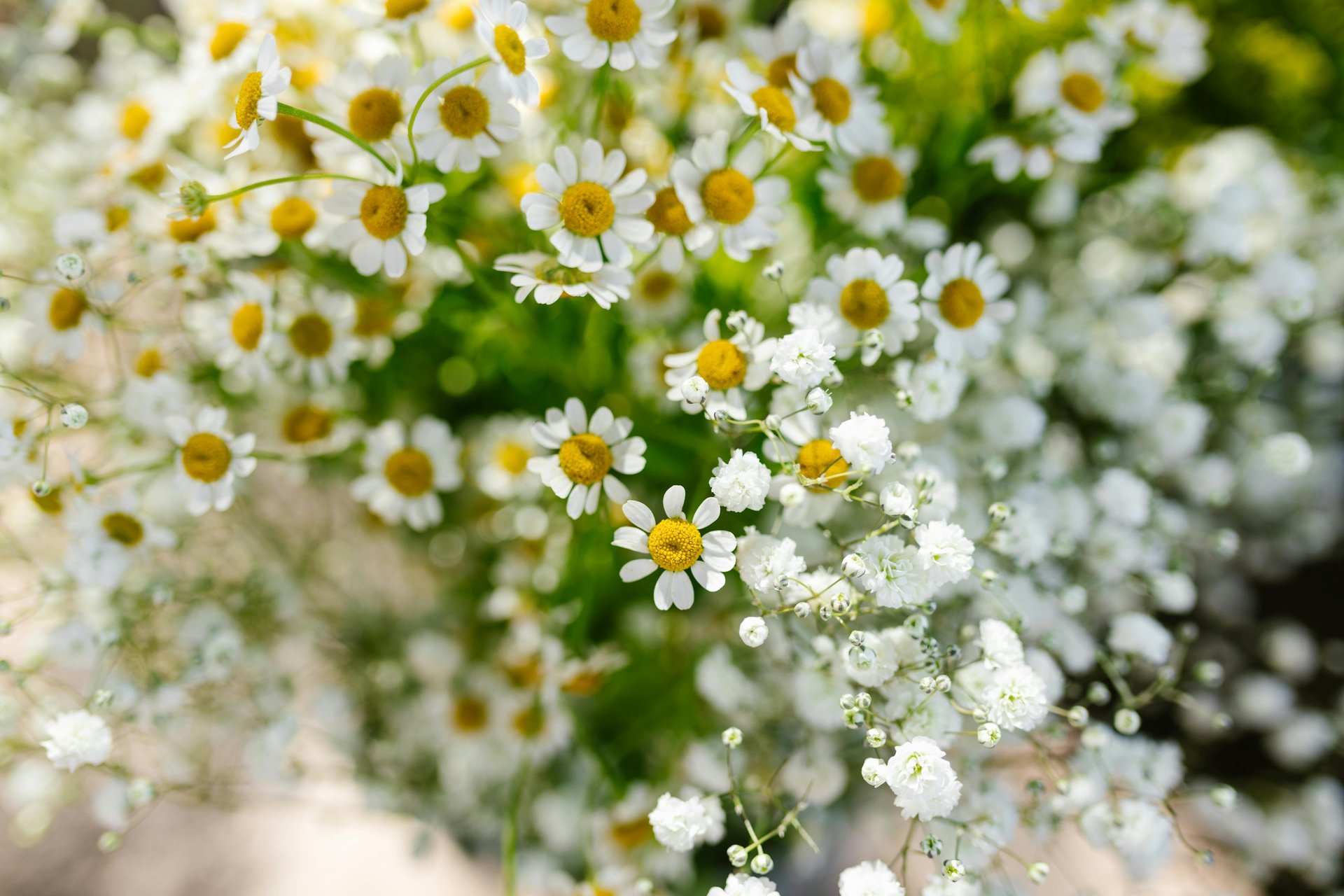
Summer Garden Tips for Success 🌞
Watering:
🌱 Water early in the morning to avoid fungal diseases and prevent moisture loss. For deep-rooted plants, ensure a thorough soak to reach their roots.
Mulching:
🌾 Add mulch around your plants to help retain moisture, reduce weeds, and keep the soil cool during the hot summer months.
Fertilizing:
🌿 Use slow-release fertilizers for steady growth. For flowering plants, choose a balanced fertilizer with higher phosphorus for blooms.
Pest Control:
🐛 Keep an eye out for common summer pests like aphids and spider mites. Use natural methods like neem oil or introduce beneficial insects like ladybugs to your garden.